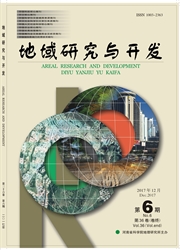

 中文摘要:
中文摘要:
以率先试点耕地保护基金的四川省成都市和尚未实行耕地保护经济补偿制度的湖北省武汉市43个村庄430名受访农民为实证,建立微观经济模型分析基本农田用途管制对不同区域农民家庭农业收入及农业劳动力配置的影响,测算基本农田用途管制给农民家庭造成的福利损失、影响因素及区域差异。研究发现:1农民个体特征及其所在区域特征显著影响基本农田用途管制的实施成效;2基本农田用途管制明显提升受访农民的家庭农业收入及农业劳动力配置,但受粮食作物比较利益低下、农地经营规模等的影响,武汉农民农业收入的相对增加量要高于成都农民,同时作物种植结构等的差异使武汉农民的家庭农业劳动力配置低于成都农民;3经济补偿政策一定程度缓和了基本农田发展权受限给农民福利带来的影响。
 英文摘要:
英文摘要:
The purpose of this study is to analyze the implementation effectiveness of farmland-use regulation,estimate the influence of land-use regulation on peasants' household agri-income and agri-labor input,measure the peasants' family welfare loss caused by the regulation,and compare regional differences of the regulation's impacts on farmers' welfare using empirical data from Chengdu City located at Sichuan Province where has started the experiment of economic compensation for farmland conservation first and Wuhan City located at Hubei province without economic compensation for farmland protection. By the help of micro-economic model,binary logit model and contingent valuation method( CVM),the study is conducted and the results are as follows: firstly,farmers' individual characteristic and their distribution have significantly influence on effectiveness of the regulation. Secondly,the regulation can increase farmers' household agri-income and agri-labor input both in Chengdu and Wuhan.However,affected by the lower comparative advantage of food crops,farmland production scale and crop planting adjustment,farmers in Wuhan have higher increase of household agri-income and lower increase of agri-labor input than that in Chengdu. Finally,economic compensation policy for farmland protection,to a certain degree,remit the effect caused by rights restriction under land-use regulation.
 同期刊论文项目
同期刊论文项目
 同项目期刊论文
同项目期刊论文
 期刊信息
期刊信息
